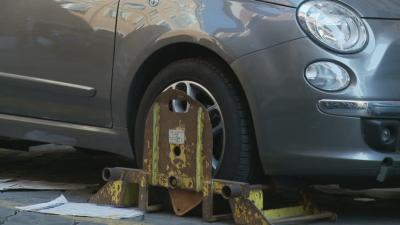Rome motorists enjoy clamping truce

ROME-- Two years ago the contract of the company that ran the clamping and car removal service was cancelled; Rome never re-opened the bidding for the contract leaving 60 workers unemployed.
The capital of Rome has remained a hot spot of double parking since the contract to the Lazio Traffic Consortium (Clt) was allowed to run out without ever being renewed. At present, the worst punishment for a parking offence is a fine of around 100 euros but the traffic trucks and clamps used in the past have been retired leaving 60 unemployed.
A few years ago, Clt would remove around 150 cars and clamp many more, but despite this, the number of clampings and removals was deemed unsatisfactorily low. Cars could be removed on sight at the behest of local police who would notice the obstruction and then notify the firm who would send out one of the 30-40 available removal vehicles. This all changed on the November 4, when the head of the Roman division, Raffaele Clemente, decided not to sign off on the new contract already won by Clt due to confirmed accusations of tax violations by two members of the consortium. The problem now is that no new call for bids for the contract has ever been released. Since then, local police could only call on upon one of a dozen removal trucks spread across as many districts provided by the prefecture of Rome. As well as how vehicles were removed so too changed the criteria for their removal. Per a memo, signed by the ex-head of removal Raffaella Moafferi on the January 20 2016, vehicles could only be removed on sight if the “they posed a threat to public order or security such as gas leaks, covering of holes in the road or the presence of suspicious people and sensitive targets.” The result of which has seen an 80 percent fall in vehicle removals in the last year and a half.
Today’s reduction in towing does not completely stem from recent government red tape; the Roman authorities had already been investigating “targeted removals” as early as 2006 to 2008. These investigations found that expensive cars would be targeted to maximise the fees payed for their release along with the hope that their owners would choose to leave them in the store instead of paying their release. Further to this, employees of Clt were accused of publishing fake invoices that would eventually have to be paid by the council totalling around 100,000 euros.
The problem does not seem close to being resolved. Neither side of the issue seems to agree with the other as Paolo Buzzi, the union representative of the 60 unemployed, has made clear, “we’ve met head of transport in the capital, Linda Meleo, who has told us that her office would soon publish the notice to re-open negotiations for the contract” but despite more than a year of strikes and sit-ins no solution or step forward has been achieved.
It seems that for now the systems in place shall continue to be used. Street control shall be handled using a combination of fines and security cameras. Until something changes, the streets of Rome shall continue to be a jungle.


